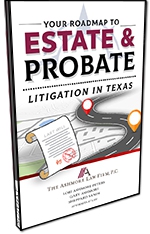1. Living Trust
A Living Trust is a trust that becomes effective during the settlor’s lifetime. This type of trust is usually created through a written instrument, either a trust agreement or a declaration of trust. One of the key benefits of a living trust is that it can help avoid probate if properly funded during the settlor's lifetime, ensuring a smoother transition of assets to beneficiaries.
2. Testamentary Trusts
A Testamentary Trust is created under a Last Will and Testament. Unlike a living trust, it does not come into existence until the creator of the trust passes away. While the trust can be modified and is revocable during the creator's lifetime, it becomes irrevocable upon their death or incapacity. This type of trust is often used to manage assets for beneficiaries after the creator's death.
3. Special Needs Trust
A Special Needs Trust is designed for individuals receiving government benefits. It provides a way to support the beneficiary with additional funds without disqualifying them from those benefits. This trust is particularly useful in cases where an inheritance, gift, or settlement could otherwise affect the beneficiary’s eligibility for government aid. To ensure it’s set up correctly, it’s essential to consult a qualified estate planning attorney who understands the intricacies of government benefit programs.
4. Spendthrift Trust
A Spendthrift Trust includes provisions that allow the trustee to withhold distributions if they believe the beneficiary might waste the funds or if a creditor intends to claim them. This type of trust is often used when a beneficiary has poor financial management skills, ensuring that the assets are protected from being squandered or claimed by creditors.
5. Irrevocable Life Insurance Trust (ILIT)
An Irrevocable Life Insurance Trust (ILIT) is created primarily to own a life insurance policy. Once established, the trust cannot be amended, terminated, or revoked. The settlor cannot reclaim ownership of the property or change the trust's terms after it’s created. The primary purpose of an ILIT is to exclude the life insurance policy from the settlor’s estate, potentially reducing estate taxes upon death.


